Click on session titles to expand for more detail


Download the Full Conference Programme PDF


Tuesday 25th November
| Times TBC | Pre-Conference Social at the Cavern Club |
Wednesday 26th November
Day One: St George’s Hall, Liverpool
| 8.30am | Delegate Registration | ||||||
| 9.30am Welcome |
Kirsty Ward, Eureka! Chair of Trustees Steve Rotheram, Metro Mayor of the Liverpool City Region Laura Pye, Director National Museums Liverpool Jörg Ehtreiber, President of Hands On! Leigh-Anne Stradeski, Eureka! Chief Executive |
||||||
| 10am Keynote |
Dr Helen Charman FRSA MA Dip Director of Learning, National Programmes and Young V&A Victoria and Albert Museum, London |
||||||
| 10.40am | Coffee and networking | ||||||
| 11.20am Conference Sessions |
|
||||||
| 12.15pm Keynote |
Baroness Floella Benjamin OM, DBE, DL Member of the House of Lords of the United Kingdom Author, broadcaster and advocate for children’s rights, happiness and wellbeing |
||||||
| 1pm | Lunch | ||||||
| 2.25pm Conference Sessions |
|
||||||
| 3.10pm | Refreshments | ||||||
| 3.50pm Conference Sessions |
|
||||||
| 4.45pm Panel Discussion |
Let’s Talk About It: A Global Conversation on Difficult Topics Chaired by Jörg Ehtreiber, President of Hands On! Panelists tbc |
||||||
| 6pm | Children in Museums Awards | ||||||
| 7.10pm | Evening reception with the Hail String Quartet – Drinks and a Light Dinner Service – informal and relaxed – North Hall, St Georges Hall |
Thursday 27th November
Day Two – Morning: Museum of Liverpool
| 8.30am | Registration, coffee and networking | |||
| 9am Plenary |
|
|||
| 9.40am Conference Sessions |
|
|||
| 10.35am Conference Sessions |
|
|||
| 11.30am | Refreshment break and networking | |||
| 11.50pm Keynote |
Dame Rachel de Souza Children’s Commissioner for England |
|||
| 12.30am | Delegates walk to Pier Head – travel to Eureka! Science + Discovery on 1pm ferry |
Day Two – Afternoon: Eureka! Science + Discovery
| 1.15pm | Lunch, networking and exploration | ||||
| 2pm Conference Sessions |
|
||||
| 2.45pm | Refreshments | ||||
| 3.25pm Conference Sessions |
|
||||
| 4.20pm Conference Sessions |
|
||||
| 5.10pm Closing Remarks |
Jörg Ehtreiber, President of Hands On!
Leigh-Anne Stradeski, Eureka! Chief Executive |
||||
| 5.30pm | Stay + Play with drinks and nibbles, free ferry return before 6.30pm | ||||
| 7pm | End of day two |
Friday 28th November
Day Three: Study Tours
1: Shakespeare North Playhouse
Join Head of Engagement, Evonne Bixter, for a tour ofthis spectacular venue, which includes a replica Cockpitin Court theatre.
- Prescot, Merseyside
- Merseyside£10 per person (transport included)
- 12.15pm – 4pm
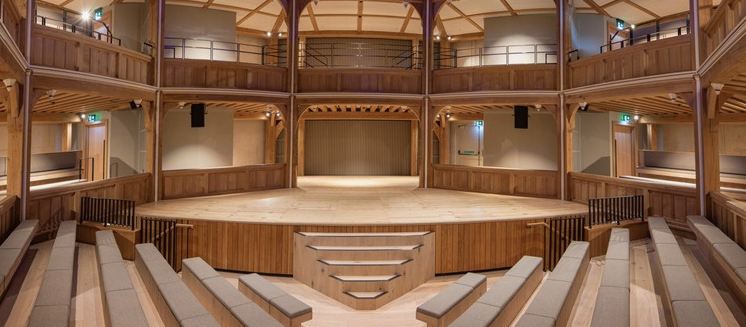
2. The Bluecoat
Join the Bluecoat’s Director of Cultural Legacies BryanBiggs and Laura Yates, Head of Participation as they show you round this beautiful arts centre housed in Liverpool’s oldest building from 1717.
- Liverpool City Centre
- £FREE
- 10am – 12pm
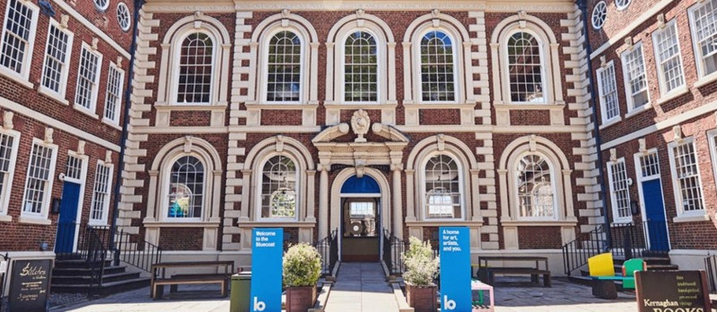
3. The Reader
MuseumThe Reader is the UK’s biggest Shared Reading charity. Itshome, in the beautiful Calderstones Park, is a warm andwelcoming community celebrating stories, creativity and nature.
- Calderstones Park, Liverpool
- £10 per person, including transport
- 12.15pm – 4pm
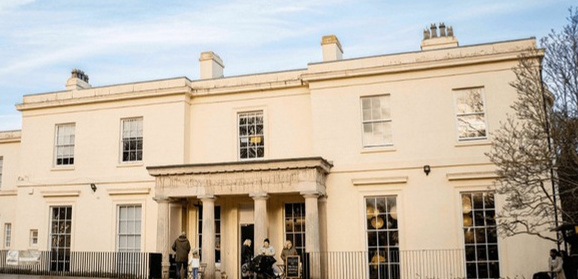
4. Eureka! The National Children’s Museum
Meet Eureka!’s Play & Learning Team to discover more about the unique experiences we create for families and schools and take part in one of our playful and engaging shows.
- Halifax, West Yorkshire
- £FREE
- Full day
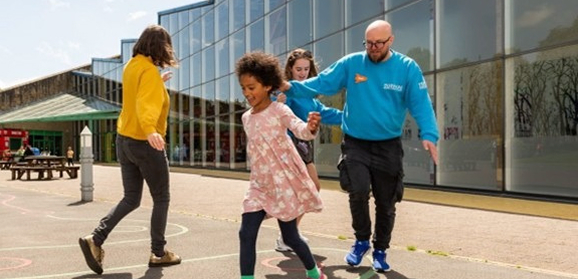
Day One: 11.20am Concurrent Sessions
1. Every Child, Every Visitor – Radical Inclusion in Museum Design
How can museums welcome every child and make them feel they belong?
This session shares inspiring examples from across Europe:
- Miffy Museum (Netherlands) – redesigned for disabled children
- Karlovac City Museums (Croatia) – tactile art that builds empathy
- Eureka! (UK) – play as a tool for equity and wellbeing
These projects show how inclusive design helps children feel safe, strong, and part of their community.
Speakers:
- Yolanda van den Berg, Centraal Museum / Miffy Museum
- Lana Bede, Karlovac City Museums
- Rachael Bevan, Eureka!
2. Co-Creation in Action – Reimagining Museums with and for Young People
What if museums were made with children, not just for them?
This session shares global examples of how young people help shape museum spaces, stories, and exhibitions:
- Groninger Museum (Netherlands) – a Children’s Biennale co-created with young voices
- National Football Museum (UK) – football as a way to explore identity and community
- Universcience (France) – a model for designing fair and relevant experiences with youth
These projects show how co-creation builds confidence, creativity, and shared leadership.
Speakers:
- Ellis Hendriksen and Lisse de Bie, Groninger Museum
- Dara Laughlin, National Football Museum
- Floriane Perot, UNIVERSCIENCE Paris
3. Young Makers, Real Impact – Empowering Children as Cultural Creators
This session explores how to involve children as active cultural creators by sharing global examples of their work as researchers, designers, and curators. The goal is to demonstrate how this role-building fosters skills, confidence, and a more equitable society, but the session also focuses on the difficulties of such projects. It will openly discuss these challenges and share a “do’s and don’ts” list for participants to apply to their own projects.
- Dublin City Council Culture Company (Ireland) – youth-led tours and podcasts
- KIMUS Kindermuseum Graz (Austria) – 15 years of student-led invention
- Kindermuseum München (Germany) – children take on real museum roles
- Amsterdam City Archives (Netherlands) – children become archivists, shaping the city’s story
These projects show how giving children real roles builds skills, confidence, and a more fair and creative society.
Speakers:
- Dervilia Roche, Dublin City Council Culture Company
- Nikola Kroath, KIMUS Kindermuseum Graz
- Antonia Huber & Christina Lemmen, Kindermuseum München
- Stefanie van Odenhoven & Marit van der Meer, Amsterdam City Archives
4. Cultivating Playful Cultures: Hiring, Inspiring and Sustaining Creative Museum Teams
Discover how museums can nurture creativity, joy and imagination by embedding play into everyday practice, from recruitment to team culture. This highly interactive session invites participants to get hands-on with playful exercises that explore how to build, attract and sustain truly playful teams.
- Z-Arts (Manchester, UK)
- Eureka! The National Children’s Museum (Halifax, UK)
Expect to move, laugh and leave with practical strategies for transforming workforce culture through play.
Speakers:
- Saskia Metcalf & Liz O’Neill, Z-Arts
- Ben Healey, Eureka! The National Children’s Museum
5. Opening Pathways – Inclusive practice, Creative dialogue & Real-World impact
How can cultural spaces help young people grow, feel seen, and shape their futures?
This session shares powerful examples of inclusive programmes:
- Francis Crick Institute (UK) – co-designed placements for care-experienced and disabled youth
- UCL Art Museum (UK) – printmaking that builds skills, confidence, and public voice
- Museum Catharijneconvent (Netherlands) – art-led dialogue to debate identity and equity
These projects show how creative learning and strong partnerships can prepare young people for life—not just work—and help cultural spaces drive real change.
Speakers:
- Ellie Horner, The Francis Crick Institute
- Celine West, UCL
- Hannah Kalverda & Sanne Groen, Museum Catharijneconvent
6. What a Wonderful World: Education for Humanity
How can museums and cultural organisations help children imagine and build a more just and connected world?
Led by the Hands On! International Board, this interactive workshop explores education for humanity, one of the core quality criteria for children’s museums. Rooted in 21st-century learning, the session invites participants to examine how museums can foster empathy, global citizenship, and social responsibility in young audiences.
With rapid-fire global case studies and a dynamic World Café format, this session models how cultural institutions can become community-rooted institutions of dialogue, care, and action – preparing children not just for work, but for life in a diverse, interdependent society.
Join them for a dynamic session on the ‘Better World’ goal in 21st-century education, featuring quick global case studies and a World Café workshop. Connect, share, and spark action for a more humane future through museum learning.
Leaders (Hands On! International Board):
- Jörg Ehtreiber
- Susanne Gesser
- Pia Laedrach
- Adam Langer
- Mariëlle Pals
- Andrea Zsutty
- Eleonora Ianni
Day One: 2.25pm Concurrent Sessions
7. Purpose, Participation & Impact – Rethinking Value in Children’s Museums
What does success look like when children’s voices, lived experiences and rights are at the centre? This session shares new ways to measure impact with purpose and meaning:
- House of European History (Belgium) – uses a Theory of Change model to connect families through hands-on learning
- Junges Museum Frankfurt (Germany) – children debate their rights in a playful, mobile ‘parliament’
- Explora (Italy) – Shares an external 25-year impact evaluation of its work using quantitative and qualitative methods
- Association of Children’s Museums (USA) – shares global data on justice-focused museum work
These examples show how child-led evaluation can help museums become more fair, responsive, and socially connected.
Speakers:
- Pauline Gault, House of European History
- Susanne Gesser & Matina Dehlinger, Historisches Museum & Junges Museum Frankfurt
- Silvia Di Benedetto, Explora, il Museo dei Bambini di Roma
- Jennifer Rehkamp, Association of Children’s Museums
8. Power in Partnership – Co-Creating Exhibitions, Experiences & Spaces with Children
What happens when children help design not just programmes, but the spaces themselves? This session shares creative ways museums are working with children to shape exhibitions and learning:
- Museum aan de Stroom (Belgium) – families co-curate the Anybody Home? exhibition
- Children’s Museum Singapore – playful consultation as a design tool
These projects show how co-creation builds deeper equity, imagination, and relevance—putting children’s ideas at the heart of change.
Speakers:
- Tammy Wille, Museum aan de Stroom
- Mishelle Lim, Children’s Museum Singapore
9. Beyond the Familiar – Reimagining Spaces, Stories & Sustainability in Children’s Exhibitions
How can children’s exhibitions explore deeper ideas like fairness, feelings, and the environment? This session shares bold, design-led approaches:
- Margaret Middleton (UK) – challenges traditional museum design and calls for more welcoming spaces
- MUSE (Italy) – Maxi Ooh! connects young children to nature through sensory play
- Wereldmuseum (Netherlands) – children explore climate action through Indigenous knowledge
- National Folk Museum of Korea – turns light pollution into a poetic, multisensory experience
These examples show how exhibitions can be emotional, meaningful, and driven by children’s ability to imagine and care.
Speakers:
- Margaret Middleton, Independent Exhibit Designer and Museum Consultant
- Walter Inama, MUSE
- Lisa Kleeven, Wereldmuseum
- Minji Yoo and MyoungLim Choi, Children’s Museum of the National Folk Museum of Korea
10. Exceptional Experiences – The Power of Partnerships to Broaden Reach & Deepen Impact
What happens when big heritage organisations work together to reach more children?
This session tells the story of Henry VIII on Tour – a major partnership between Historic Royal Palaces, English Heritage, and the National Trust. Together, they brought 5,000 pupils, including SEND learners, into exciting, hands-on history through festivals, workshops, and creative outreach.
By combining travel bursaries, inclusive design, and shared planning this project shows how strategic partnerships can break down barriers to access, amplify learning through the arts, and create deeply participatory experiences – no matter the size or scale of your institution.
Speakers:
- Saira MacNicol & Deborah Hogan, Historic Royal Palaces
11. Evidence, Empathy & Impact – Long-Term Learning in Action
What does real impact look like—and how can we measure it over time?
This session highlights long-term, evidence-based programmes that support children’s learning and wellbeing:
- Centre for Life (UK) – 25 years of science learning through research, creativity, and experimentation
- POLIN Museum (Poland) – uses empathy and co-creation to explore history, refugees, and early years learning
These examples show how thoughtful, child-centred evaluation can fuel more joyful, welcoming, and emotionally intelligent museum practice – grounded in lived experience and built for long-term change.
Speakers:
- Andy Lloyd, Centre for Life
- Ewelina Jarnutowska, POLIN Museum
Day One: 3.50pm Concurrent Sessions
12. Spaces that Speak – Building a Storytelling Network for Impact
What happens when storytelling venues work together to inspire creativity, connection, and care?
This session explores the Story Venue Cohort—a network of UK organisations
- Z Arts (Manchester, UK)
With support from Arts Council England, they’ve moved from informal sharing to joint research—creating exhibitions, performances, and writing programmes that support literacy, wellbeing, and equity. This is a session for anyone interested in how stories and spaces can drive real change.
Speakers:
- Saskia Metcalf & Laura Gander Howe, Z Arts
13. Creative Communities – Engaging Audiences in Non-Traditional Learning Spaces
How can everyday public spaces become places where young people feel heard, included, and inspired? This session shares three creative projects that turn libraries, parks, and civic buildings into spaces for youth-led learning and action:
- Ignite! (UK) – uses council chambers and local spaces to spark curiosity and science learning
- Young Museum Frankfurt (Germany) – brings museum activities into parks, focusing on mobility and local relevance
- Sladovna Písek (Czech Republic) shares Re-value, uniting nine cities for greener, inclusive urban spaces.
These examples show how reimagining public space can build belonging, unlock creativity, and put youth at the heart of cultural life.
Speakers:
- Catriona Kelly & Megan Shore, Ignite!
- Laura Hollingshaus, Education & Outreach, Young Museum Frankfurt
- Adam Langer, Director and dramaturgist, Sladovna Písek
14. Out of the Blue, Into the Bluecoat – Breaking Barriers Through After-School Arts
How can after-school arts programmes build trust, creativity, and confidence in children?
This session shares the story of Out of the Blue, a 10-year programme at Bluecoat (Liverpool UK). It connects children from underserved communities with contemporary art through artist-led workshops, gallery visits, and school outreach—reaching over 3,700 interactions each year.
Rooted in joy and equity, the programme shows how long-term engagement can open doors to creativity and learning beyond the classroom.
Speaker:
- Laura Yates & Emily Hughes, The Bluecoat
15. Making a Difference in STEAM – Engaging Young Minds Through Chemistry
How can hands-on science inspire curiosity, confidence, and real change?
This session from Liverpool John Moores University’s Absolute Chemistry Research Group (ACRG) shares how a decade of STEAM outreach is transforming science engagement for children aged 5–19 across underserved communities in the Liverpool City Region.
Through interactive demonstrations, theory-informed tools, and robust evaluation, ACRG shows how evidence-based, playful science education can foster belonging, deep learning, and real-world impact – building future skills and shifting attitudes one experiment at a time.
Speakers:
- Andrea Mallaburn
- Professor Linda Seton
- Menna Goodwin
16. Learning Without Walls – Reimagining Museums as Everyday Classrooms
What if museums were part of everyday learning—not just special trips?
This session explores how cultural spaces are becoming regular, welcoming places for children to learn and grow:
- National Gallery of Ireland – turns the gallery into a full-time classroom
- GEM (UK) – shares new research and a toolkit for working with home-educated families
- Miami Children’s Museum (USA) – blends exhibits with early years education in a museum preschool
- MoMA Warsaw (Poland) – Primary Forms lets students become curators in a school-museum partnership
These projects show how museums can support daily learning, creativity, and belonging for every child.
Speakers:
- Erin Laidlaw, National Gallery of Ireland
- Shannen Johnson & Nicky McIntosh, GEM UK
- Maria Giulia Voltini, Mary Anne Ullery & Natalie Williams, Miami Children’s Museum
- Sebastian Cichocki, Museum of Modern Art Warsaw
Let’s Talk About It – A Global Conversation on Difficult Topics
In this interactive, talk-show-style session, Jörg Ehtreiber (Austria) will facilitate a bold dialogue on how children’s museums can confront themes like death, migration, identity, and democracy – amid rising political pressure and cultural division.
Drawing on global case studies, the session explores how institutions can navigate risk, uphold empathy and equity, and remain courageous community-rooted institutions in turbulent times.
This is a session for museum leaders ready to move from silence to substance and reclaiming their role as places of meaning, not just amusement.
Join this bold, solutions-focused conversation and leave with renewed strategies, shared strength, and global solidarity in using your platform to shape a more just, welcoming future for children.
Facilitator:
- Jörg Ehtreiber, President of HandsOn International Association of Children in Museums (Austria)
Day Two: 9.40am Concurrent Sessions
17. Museums as Catalysts – Empowering Young Learners for a Sustainable & Equitable Future
How can museums help children build the skills and empathy needed for a changing world? This session shares global examples of how cultural organisations support sustainability, equity, and future-ready learning:
- University of Valencia (Spain) – TOWCHED project links museum learning to the UN Sustainable Development Goals
- Walker Art Gallery (UK) – The Eridge Project supports underserved students through creative, career-focused learning
- London Transport Museum (UK) – shows how short-term programmes can build real-world skills and confidence
These projects show how museums can help children imagine and build a fairer, more sustainable future.
- Mar Gaitán & Arabella León, University of Valencia
- Frankie Reed, Walker Art Gallery
- Emma Crew & Kate Hunter, London Transport Museum
18. Language, Healing & Play – Designing Culturally Responsive Museum Experiences
How can museums become places of healing, joy, and cultural connection? This session shares four powerful projects where language, play, and emotional wellbeing help children feel welcome and understood:
- Talkin’ Potters (UK) – celebrates dialect and heritage through playful, intergenerational wordplay
- POLIN Museum (Poland) – supports refugee children with trauma-informed creative programmes
These examples show that culturally responsive design is essential for building belonging, resilience, and meaningful learning.
Speakers:
- Christina Buckingham, University of Salford & Reform Heritage – Middleport Pottery
- Anna Dybala-Pacholak, POLIN Museum
19. Reclaiming Risk – Creativity, Safety & Purpose in Children’s Play
How can we move beyond over-safe play and give children space to explore, take risks, and grow? This session shares three bold approaches to show how creagtive, courageous play helps children thrive:
- CAPCO (UK) – challenges “ultra-processed play” and calls for more freedom and imagination
- Timberplay (UK) reframes managed risk as essential for resilience and joy beyond offering practical strategies for play design and policy.
Together, these talks show how creative, courageous play helps children thrive.
Speakers:
- Margaret Middleton, Independent Exhibit Designer and Museum Consultant
- Johnny Lyle, Creating Adventurous Places Ltd. (CAP.CO)
- Beth Cooper, Timberplay
- David Yearley, RoSPA Play Safety
Day Two: 10.35am Concurrent Sessions
20. tbc
tbc
21. Stories That Open Doors – Inclusive Reading in Italian Museums
How can storytelling foster equity, empathy, and belonging in museums?
Italy’s Kid Pass shares Avventure tra le pagine – Leggiamo al Museo, a nationwide festival transforming 150+ museums into welcoming, family-friendly reading spaces each November.
Through animated stories, sensory workshops, and LIS interpretation, the initiative supports literacy, creativity, and emotional connection for children aged 0–12. Co-created with museum educators, authors, and accessibility experts, the programme adapts to each venue focusing on diverse learning styles, access needs, and local voices.
This session offers practical tools for using storytelling to build community connection, cultural access, and joyful learning in your museum.
Speakers:
- Marianna Vianello & Francesca Grisot, Kid Pass
- Francesca Grisot, PhD, CREA – Center for Ethno-Anthropological Research Founder, A2030 OdV – Social Innovation Designers
22. Colours of our Heritage
How can museums bring learning to children wherever they are?
This session explores a creative mobile project that make cultural learning fun, accessible, and community-led:
- Kenaz Art Studio (UAE) – delivers traditional and modern arts programmes to remote areas, blending creativity with cultural pride
This project show how mobility and imagination can turn any place into a space for learning.
Speakers:
- Ghaleya Almansoori & Ali Alkaabi, Kenaz Art Studio
Day Two: 2pm Concurrent Sessions
23. Dinosaurs on Prescription – Culture, Care & Creative Social Prescribing
What if a child’s first museum visit happened from a hospital bed?
This session shares Creative Pathways, a unique partnership between National Museums Liverpool and Alder Hey Children’s Hospital. The programme brings dinosaurs, art, and storytelling to young patients in hospital wards—from oncology to mental health—offering joy, connection, and creativity.
We will explore how museums can support wellbeing in clinical settings, showing that cultural experiences can heal, comfort, and help children feel seen.
Speakers:
- Siobhan Cull & Dave Roberts, National Museums Liverpool
- Vicky Charnock from Alder Hey Children’s Hospital
24. Beyond the Tick Box – Rethinking Skills, Learning, and Evaluation
What if impact measurement felt as joyful as the learning itself?
London Transport Museum shares its pioneering, skills-first approach to evaluation – rooted in six core green skills: curiosity, creativity, collaboration, communication, critical thinking, and problem-solving.
Co-designed with schools and families, their playful tools – like bingo cards and drama games – invite children to reflect on their own growth, not just tick boxes.
In this hands-on session, delegates will explore metacognition, failure as learning, and how museums can measure what really matters – supporting ownership, confidence, and future-ready mindsets through co-created evaluation.
Speakers:
- Kate Hunter & Emma Crew, London Transport Museum
25. Nurturing Artful Beginnings – The Power of Process, Art & Play
How can we welcome families into museums through creativity, empathy, and wonder?
This session from National Gallery Singapore explores the newly redesigned Keppel Centre for Art Education—a joyful space for children aged 4–12 focused on play, sensory exploration, and hands-on learning.
Participants will try activities from Gallery Toddlers! and reflect on how process-led design builds curiosity, confidence, and connection. Perfect for anyone designing spaces for early learners or championing family-friendly engagement.
Speakers:
- Susanne Goh, Elaine Chan & Shaherah Bte Arshad, National Gallery Singapore
26. Creating Change – Museums as Spaces for Dialogue, Identity & Inclusion
How can museums respond honestly to the real lives of young people?
This session brings together three powerful voices exploring identity, inclusion, and dialogue:
- S.M.A.K. (Belgium) – shares S.M.A.K. Moves, a programme born from a young visitor’s act of “vandalism” that turned disruption into civic conversation
- Margaret Middleton (UK) – challenges what “family-friendly” means and shares ways to include LGBTQ+ stories in exhibitions
- Explora (Italy) – presents the award-winning #NOGAP campaign, which breaks down gender stereotypes in everyday museum practice
These inspiring examples show how museums can lead with values and create spaces of joy, justice, and belonging.
Speakers:
- Aline Van Nereaux, S.M.A.K.
- Margaret Middleton, Exhibit Designer & Museum Consultant
- Alessandra Arcella, Explora, il Museo dei Bambini di Roma
Day Two: 3.25pm Concurrent Sessions
27. Future Thinkers – Creative STEAM Learning Rooted in Place, Culture & Collaboration
How can STEAM education build not just skills – but confidence, identity, and community?
- Fairplayed Media (UK) – Animates use storytelling and song to connect children with invention, green tech, and civic identity
- Sci-Tech Daresbury (UK) – The Halton Project co-designs coding kits for mainstream and SEND learners
These projects show how joyful, place-based STEAM learning can help all children become creative problem-solvers and future-ready thinkers.
Speakers:
- Alex Cousins, Fairplayed Media
- Gina Czarnecki, Sci-Tech Daresbury
28. Engaging the Earliest Learners – Designing Meaningful Museum Experiences for the Under-5s
What does powerful learning look like before children can speak?
This session explores how museums can welcome babies, toddlers, and caregivers through play, creativity, and empathy:
- Victoria & Albert Museum (UK) – Design Baby uses design thinking and artist input to create playful, sensory experiences that grow with families
- Deutsches Museum (Germany) – Minis im Museum features mobile “experimentation islands” co-designed with caregivers and based on child development research
These projects show how museums can spark curiosity and connection from the very beginning.
Speakers:
- Kathryn Box, Victoria & Albert Museum
- Vera Ludwig & Franzika Kumm, Deutsches Museum
29. Radically Inclusive & Outcome Rich Audiences
How can museums create truly inclusive learning for children and young people with SEND?
This session shares three UK-based programmes that centre creativity, care, and co-creation:
- Attenborough Arts Centre – SENsory Atelier transforms galleries into sensory-rich spaces for child-led expression, inspired by Reggio Emilia
These models offer practical tools and inspiration for embedding equity and creativity in museum learning and communication.
Speakers:
- Lisa Jacques, Sian Watson-Taylor & Marianne Scahill-Pape, Attenborough Arts Centre
30. Picture One Artwork! – Empowering Young Learners Through Artistic Discovery
How can one artwork spark creativity and confidence in early learners?
This hands-on workshop from National Gallery Singapore explores Picture One Artwork!, a preschool programme that uses guided looking, movement, and sustainable artmaking to spark creativity, inquiry, and confidence.
Learn how multisensory engagement connects galleries, classrooms, and families, turning early learners into curious, empowered participants in cultural spaces.
Facilitator:
- Shaherah Bte Arshad, Elaine Chan & Susanne Goh, National Gallery Singapore
Day Two: 4.20pm Concurrent Sessions
31. Beyond the Screen – Inclusive Digital Experiences That Empower, Engage, and Transform
How can digital tools support equity, creativity, and meaningful learning?
This global panel shares four innovative approaches where tech meets co-creation, wellbeing, and civic purpose:
- Science Museum Group (UK)– Wonderlab+ is a playful STEM platform designed for accessibility and impact
- ZOOM Museum (Austria)– connects hospitalised children through collaborative animation and adaptive tech
- Explora (Italy)– Genius Loci blends AR, nature, and open-source tools to spark exploration
- Alchemilla Social Cooperative (Italy)– empowers young children as digital co-creators through theatre and metaphor.
Using these case studies this session will explore how digital experiences can deepen participation and transform museums into community-rooted spaces.
Speakers:
- Emilia McKenzie, Science Museum Group
- Andrea Zsutty & Barbara Kaiser, ZOOM Museum
- Daniela Bassi, Explora, il Museo dei Bambini di Roma
- Elisa Rota, Alchemilla Social Cooperative
32. Open Up the Mic – Comedy as a Catalyst for Confidence and Connection
Join Showtown Blackpool (UK) for an energising, hands-on workshop that uses comedy as a tool for wellbeing, resilience, and civic connection.
Rooted in Blackpool’s iconic entertainment heritage, we’ll discover how humour can break down barriers, build perspective, and spark creative participation.
Try practical techniques for storytelling, reframing, and playful engagement – ideal for anyone looking to embed joy, equity, and confidence into museum learning.
No punchline required – just a willingness to laugh, share, and connect.
Facilitators:
- Kari Singleton, Showtown Blackpool
- Ruth Cockburn, Black Liver
33. Transforming Lives Through Music
Since 2009, the Royal Liverpool Philharmonic Society has been running In Harmony, using orchestral music to transform young lives in Everton and Anfield. Each week, over 1,750 children and young people receive free music education, building confidence, resilience, and aspiration, with long-term studies showing lasting social impact.
Discover how they engage with communities and local partners to build trust and break down barriers.
Facilitator:
- Zoe Armfield, Royal Philharmonic Society
34. Baby Steps – The Art Museum as a Territory for Babies
How can museums nurture creativity and connection from the very beginning?
Oscar Niemeyer Museum (Brazil) shares MON Primeiros Passos – a multisensory programme that welcomes babies aged 1–3 as curious, capable participants.
Through play, touch, and shared discovery, we’ll unpack how galleries can become welcoming, responsive environments for early development, caregiver bonding, and cultural belonging.
Speaker:
- Samantha Baldissera & Hanna Andrade Torquato, Oscar Niemeyer Museum
Pre-Conference Social – Tues 25 November
Join us at the iconic Cavern Club “the most famous club in the world!” for an exclusive pre-conference welcome and social event, allowing delegates to immerse themselves in the history of Liverpool, meet up with colleagues and make new connections.
The Cavern Club is a legendary music venue on Liverpool’s famous Mathew Street, renowned for its association with the Beatles.
Opening in 1957 as a jazz club, it evolved into a hub for the rock and roll scene in the late 1950s and early 1960s. The Beatles performed there almost 300 times between 1961 and 1963, significantly shaping their early career.
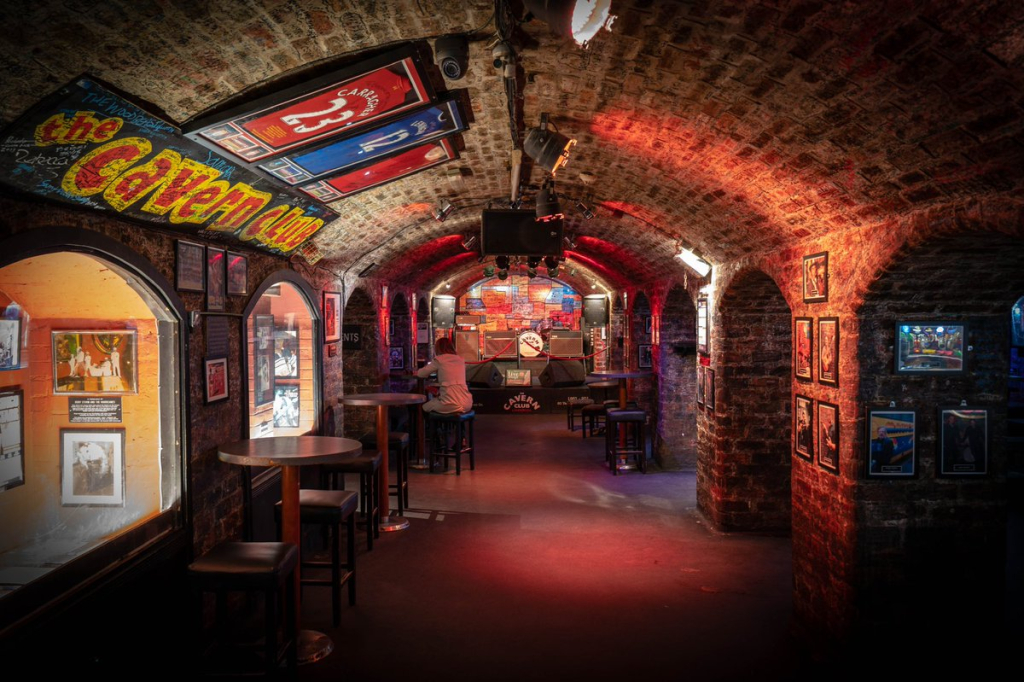
Youth, Megacities, and the New Museums of the Future
Young people have the unique skills, agency, and moral authority to drive societal change, particularly in areas where adult institutions are too timid or tradition-bound to engage. But the capabilities of youth often lie unrecognized and fallow. To fully develop their agency as hands-on changemakers, young people need new kinds of institutions, stronger platforms, and better, more skilful allies in the world of adults.
In this inspiring and visionary talk, cultural strategist Michael Peter Edson shares the story of the Museum of Solutions, Mumbai, recognized as one of TIME Magazine’s 100 Greatest Places and winner of the 2024 Hands On! Children in Museums Award.
MuSo, dedicated to supporting young people as agents of change, is part of a bold new experiment emerging across the global cultural sector to flip the script on traditional museum practice, sending kids and communities on a quest to discover the world around them and make a future together that is joyous, sustainable, and just.

Let Play Lead the Day: How Imagination, Emotional Literacy, and Joyful Connection Drive Real-World Impact
This energising session explores how play makes a measurable difference in children’s lives, raising aspirations, building resilience, and nurturing wellbeing.
Through creative learning, animation, and practical examples, Amber Ogunsanya-William will spotlight how play empowers families, fills gaps left by formal systems, and inspires creative learning across communities.
Drawing on lived experience, sector insights, and emerging evidence, the session will explore how play fosters emotional literacy, strengthen relationships, and create lasting change.
Delegates will leave with fresh insights, impact-focused strategies, and playful tools they can immediately apply in their own work. Expect a celebration of imagination, connection, and the power of play to truly make a difference.